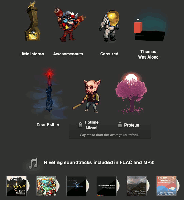Ci spiace, ma questo articolo è disponibile soltanto in Inglese Americano.
Jun 042013
Recentemente un mio collega doveva eseguire più processi paralleli su un server (circa 20 nel nostro caso specifico), ogni processo faceva delle “cose”, e questo può richiedere un tempo più lungo o più corto rispetto agli altri, una volta che un processo termina il suo compito deve leggere da un file di testo la prima riga che indica l’ID di un nuovo lavoro, rimuove tale ID dalla parte superiore del file di testo e inizia ad elaborarlo.
Problema: su un lungo periodo (una elaborazione con più di 50K ID) capita “spesso” che 2 processi terminano nello stesso tempo e così entrambi hanno lo stesso ID causando problemi a tutto il processo, si è cercato di utilizzare un file di lock semplice facendo un “touch” quando il processo apriva il file con l’elenco di ID, ma sembra che questa operazione è troppo lento e abbiamo avuto ancora qualche caso di concorrenza fallito.
La soluzione è stata utilizzare la funzione di bash flock Continue reading »
 Humble Indie Bundle (HIB) è stato rilasciato il numero sette e questa è la lista di giochi che è possibile trovare al suo interno: Dear Esther, Capsized, Awesomenauts, Thomas Was Alone, and Little Inferno. E se pagate più della media avrete anche, Hotline Miami and Proteus!
Humble Indie Bundle (HIB) è stato rilasciato il numero sette e questa è la lista di giochi che è possibile trovare al suo interno: Dear Esther, Capsized, Awesomenauts, Thomas Was Alone, and Little Inferno. E se pagate più della media avrete anche, Hotline Miami and Proteus!
Cosa è un HIB? in breve:
Humble Indie Bundles o Humble Bundles sono una serie di collezioni di giochi che vengono venduti e distribuiti on-line a un prezzo stabilito dall’acquirente. I giochi sono multi-piattaforma, DRM-free, e sviluppati in modo indipendente, e gli acquirenti possono impostare la ripartizione delle entrate tra gli sviluppatori, enti di beneficenza e gli organizzatori della offerta promozionale.
Grazie Wikipedia .
Avete tempo per altri 9 giorni prima che questa offerta si esaurisca, ma diamo una rapida occhiata ad i giochi presenti in questa offerta Continue reading »
Alcuni giorni or sono ho pubblicato un articolo su copy.com, un servizio simile a Dropbox in cui una copia di una delle cartelle è sincronizzata su Cloud, questo è vero per tutti i computer in cui si installa l’applicazione di copy.com/dropbox/ubuntu one e così si possono facilmente condividere i documenti tra i computer ed averne una copia su cloud.
Ma cosa succede se non si desidera condividere una copia su Cloud dei vostri documenti, ma è necessario condividere rapidamente un documento tra i computer?
Una chiavetta Usb di solito è l’opzione migliore, ma c’è anche una alternativa che utilizza la rete locale per inviare dati tra i computer: NitroShare
NitroShare è progettato per essere senza problemi in ogni aspetto. Basta installare l’applicazione su qualsiasi macchina con Ubuntu o Windows e siete a posto. Ogni macchina scoprirà tutte le altre macchine della rete locale. L’applicazione si integra con il sistema operativo, utilizzando indicatori dell’app su Ubuntu e il sistem-tray in Windows.